Florida A&M University's Veterinary Technology Program: Training Tomorrow’s Leaders in Animal Health
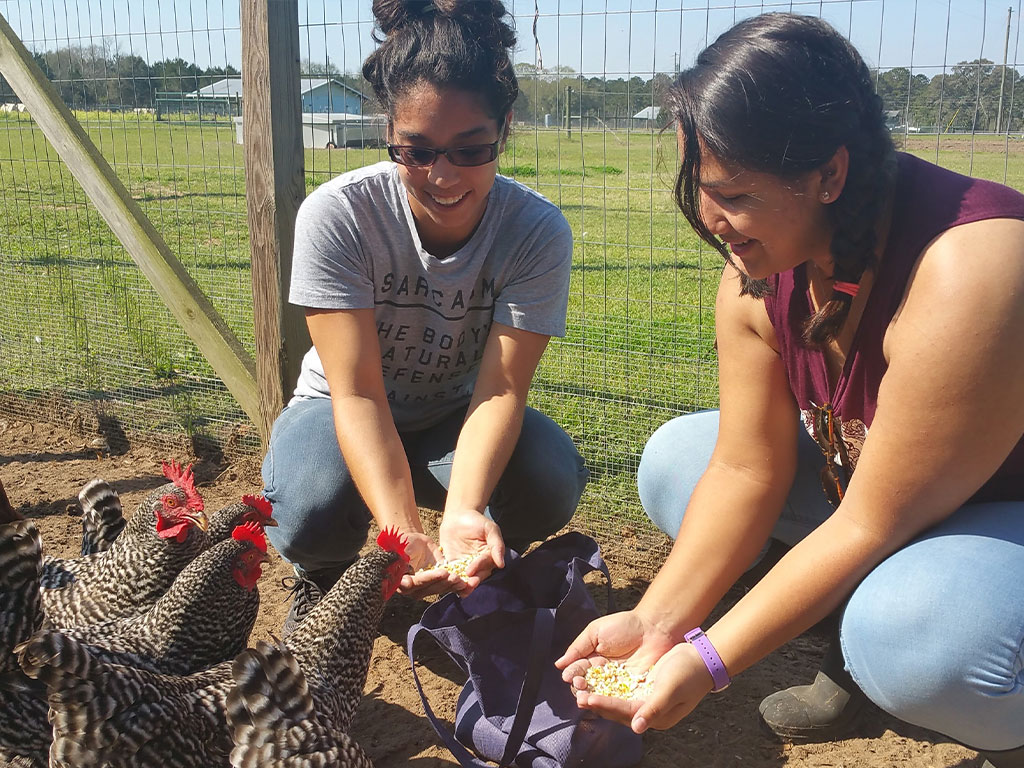
Florida A&M University’s College of Agriculture and Food Sciences (CAFS) continues to fulfill its mission of excellence in education, research, and community service through one of its most distinctive offerings—the Veterinary Technology Program (VTP). While it may still be new to some within the University community, the program is rapidly emerging as a cornerstone of FAMU’s agricultural legacy, providing rigorous, hands-on training and professional development for students dedicated to animal science, health, and care.
“Our students gain more than just technical skills—they develop a strong foundation in compassion, ethics, and professionalism,” said Glen Wright, DVM, director of the Veterinary Technology Program. “The goal is to prepare graduates who can excel in any sector of animal health, from small animal clinics to large-scale research institutions.”
The VTP began development in 2006 and welcomed its first cohort of seven students in 2010. Since then, the program has expanded significantly—today enrolling nearly 40 students, with participation having reached as high as 55 in previous years. To date, more than 45 graduates have successfully entered the workforce or pursued advanced degrees in veterinary medicine and animal-related fields.
Graduates of the program now serve as certified veterinary technicians, research specialists, zookeepers, animal health inspectors, and pharmaceutical quality analysts. Many continue their education in veterinary schools across the nation, including Tuskegee University, the University of Florida, Auburn University, and the University of Minnesota, among others.
 Genesis Dawkins, a third-year student, plans to work with exotic animals. (Photo by
Glenn Beil/FAMU)
Genesis Dawkins, a third-year student, plans to work with exotic animals. (Photo by
Glenn Beil/FAMU)
“When it came to choosing a veterinary program, I looked at different schools across
the country, and FAMU stood out,” said Genesis Dawkins, an animal science scholar from Jacksonville, Florida. “FAMU had the best options in terms of me gaining pre-vet experience and knowledge
compared to other colleges,”
A key element of FAMU’s VTP success is its access to the FAMU Research and Extension
Center (REC) in Quincy, Florida, a 260-acre agricultural complex that serves as both
a classroom and a living laboratory. Students work directly with a range of animal
species—cattle, swine, goats, and horses—developing practical skills in animal care,
behavior, nutrition, and husbandry.
The Veterinary Technology Building within the REC is a modern, 3,000-square-foot facility
that mirrors the operations of a small animal hospital. It includes clinical and digital
labs, radiography and ultrasound rooms, a surgery suite with observation windows,
and a pharmacy, as well as classrooms and faculty offices.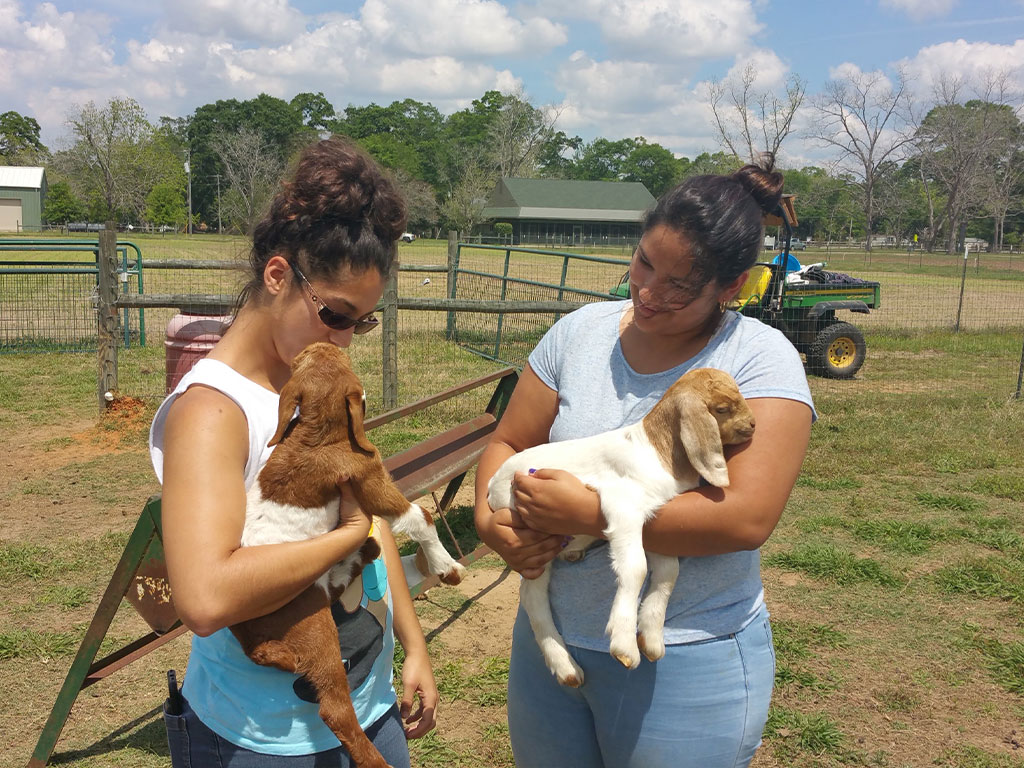 FAMU’s Veterinary Technology Program has a Research and Extension Center (REC) in
Quincy, Florida, a 260-acre agricultural complex that offers experential learning.
(Photo special to FAMU)
FAMU’s Veterinary Technology Program has a Research and Extension Center (REC) in
Quincy, Florida, a 260-acre agricultural complex that offers experential learning.
(Photo special to FAMU)
“This facility is a tremendous asset to our students and the community,” said Wright. “We’re equipping future veterinary professionals with hands-on experience using the same technologies and practices found in professional veterinary hospitals.”
The VTP offers students extensive opportunities for internships, research, and service learning. Participants rotate through local veterinary clinics, USDA and state laboratories, shelters, and zoos. Many gain additional hands-on experience by volunteering at the REC.
Since September, Dawkins, a junior, has been volunteering with the Leon County Humane Society, an experience she says has pushed her outside her comfort zone in the best way.
“I actually love it. It’s helping me get more comfortable with cats because I’m not the best with them,” she said with a laugh. “But working there is helping me get more familiar with them, and today I even got to shadow the team as they administered vaccines and dewormer.”
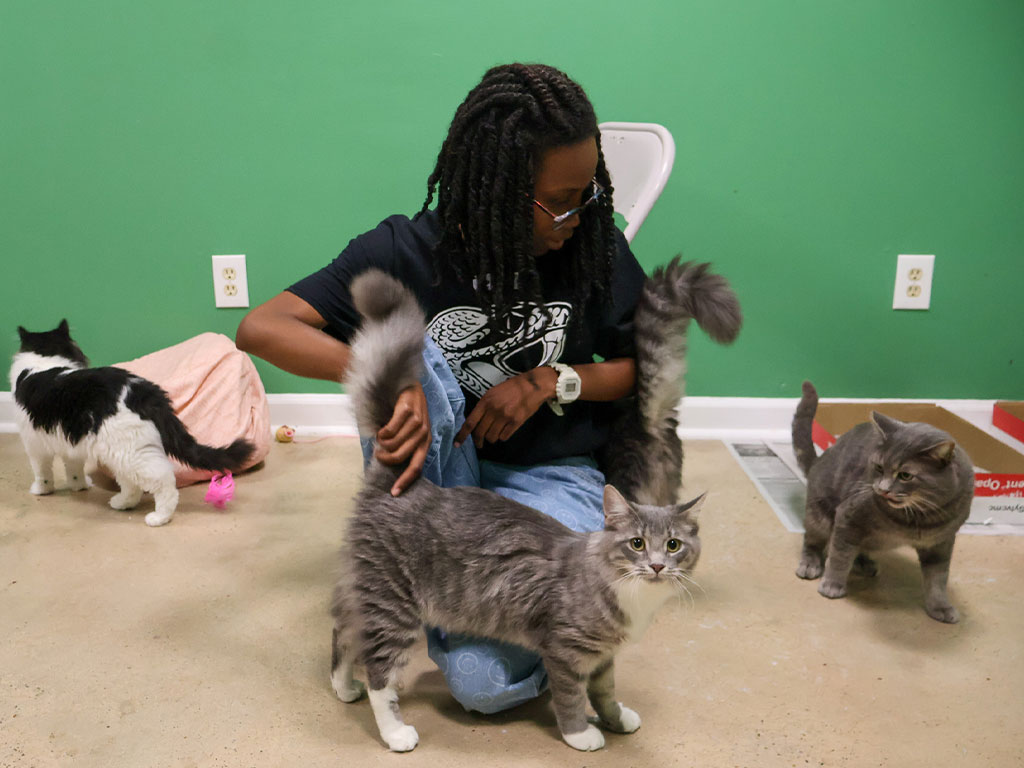 Genesis Dawkins tends to the cats housed at the Leon County Humane Society. (Photo
special to FAMU)
Genesis Dawkins tends to the cats housed at the Leon County Humane Society. (Photo
special to FAMU)
Dawkins ultimately hopes to become a veterinarian specializing in exotic animals.
It’s a newly discovered passion shaped by a recent internship in Jacksonville.
“I realized there aren’t many exotic veterinarians out there,” she explained. “So, if you have anything that isn’t a dog or a cat, you’re probably going to need a lot of help. I want to fill that gap and support people who have guinea pigs, rabbits, snakes. You know any of the ‘odd’ animals. That’s where I want to make a difference,” she said.
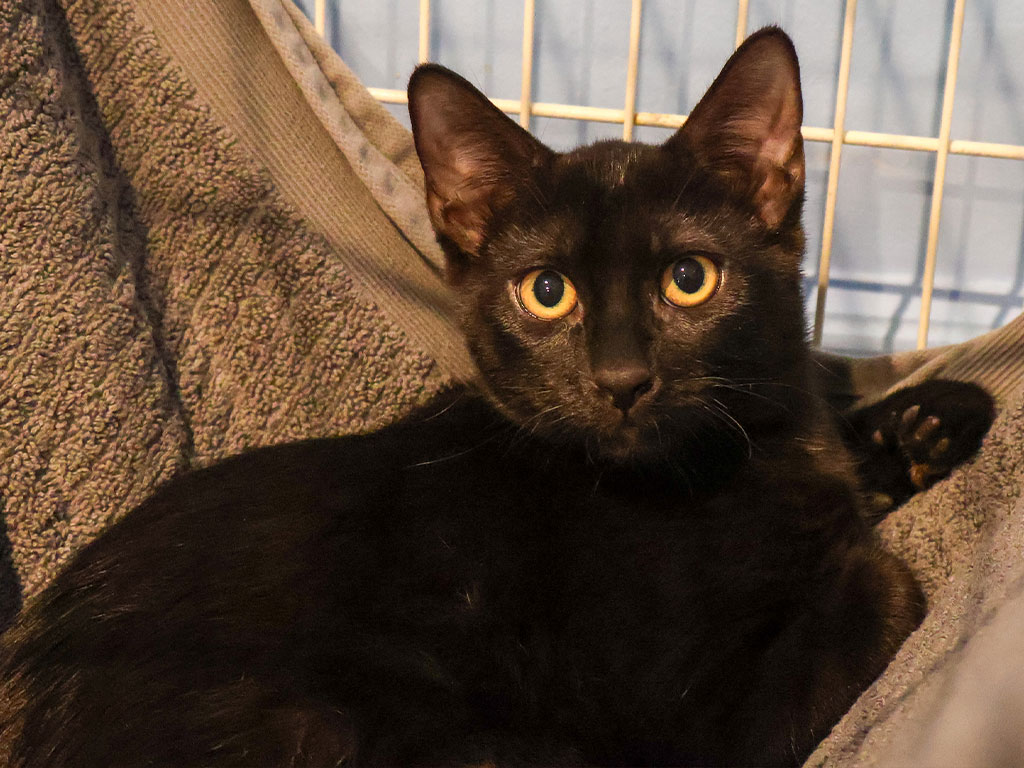 Moe is one of the many cats FAMU student Genesis Dawkins has gotten to know at the
Leon County Humane Society. Moe is one of several cats available for adoption. (Photo
by Genesis Dawkins/FAMU)
Moe is one of the many cats FAMU student Genesis Dawkins has gotten to know at the
Leon County Humane Society. Moe is one of several cats available for adoption. (Photo
by Genesis Dawkins/FAMU)
Program graduates are now employed at organizations such as Banfield Pet Hospital, Veterinary Centers of America, the Florida Department of Agriculture and Consumer Services, Boehringer Ingelheim, North Florida Animal Hospital, Alexandria Zoological Park, and the Tallahassee Animal Service Center. Others have gone on to become veterinarians, researchers, and animal health educators throughout the United States.
“The Veterinary Technology Program exemplifies the mission of FAMU as Florida’s 1890 Land-Grant institution,” said Dean G. Dale Wesson, Ph.D., P.E., dean and director of Land-Grant Programs. “Through this program, we are advancing agricultural education, supporting workforce development, and improving both animal and human lives through research and service.”
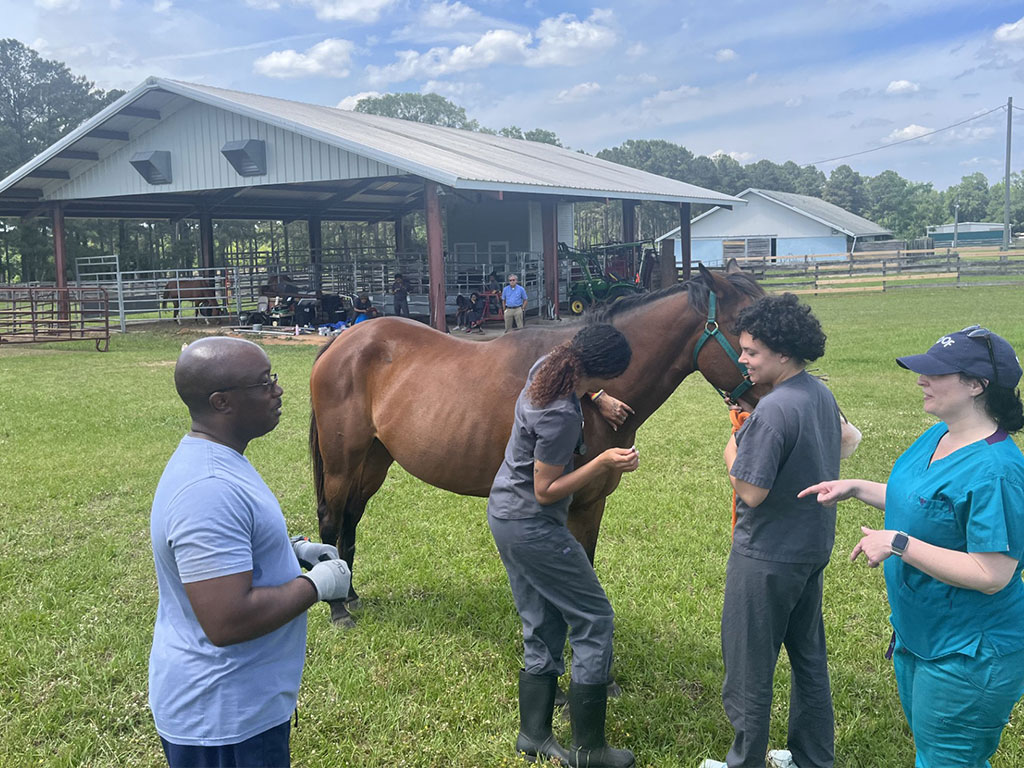 FAMU students assist with performing a horse examination. (Photo special to FAMU)
FAMU students assist with performing a horse examination. (Photo special to FAMU)
The program’s accreditation from the American Veterinary Medical Association’s Committee on Veterinary Technician Education and Activities (AVMA-CVTEA)—first awarded in 2013 and renewed in 2018 and 2023—demonstrates FAMU’s ongoing commitment to maintaining national standards of quality and excellence. The current accreditation extends through 2028, a testament to the program’s sustained progress and leadership in the field.
“The strength of the Veterinary Technology Program lies in its alignment with CAFS’s mission of student-centered excellence,” said Neil James, Ph.D., associate dean for Academic Programs. “Our students graduate prepared not only to meet the needs of the industry but to lead it—bridging the gap between science, agriculture, and community service.”
With its growing enrollment, strong industry partnerships, and state-of-the-art facilities, the Veterinary Technology Program continues to position FAMU as a leader in animal health education in the Southeast. Beyond producing skilled veterinary technicians, the program nurtures leaders who will shape the future of animal care, food safety, and agricultural innovation.
As FAMU continues to expand its academic reach and impact, the College of Agriculture and Food Sciences remains committed to providing transformative learning experiences that empower students to lead with purpose and compassion affirming that, indeed, “We the College of Agriculture and Food Sciences put the ‘A’ in FAMU.”
Media Contact:
Rachel James-Terry
Senior Director of Strategic Communications
rachel.jamesterry@famu.edu

